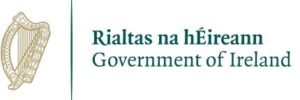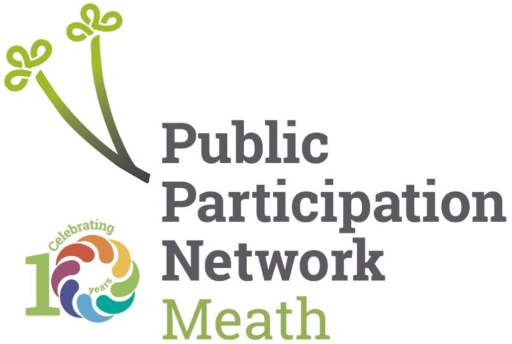Government launches first ever Town Centre First policy

- Major new strategy to tackle vacancy, combat dereliction and breathe new life into town centres
- Network of Town Regeneration Officers to drive future development
- Unprecedented investment to make our towns better places to live, work and raise a family
- Suite of supports and tools to help businesses and local communities deliver on their unique vision for their area
- New Policy to deliver on the objectives of ‘Housing for All’ and ‘Our Rural Future’
The Town Centre First Policy is available at https://www.gov.ie/en/
Media Release: Friday, 04 February 2022
The Government has today published Town Centre First – a major new policy that aims to tackle vacancy, combat dereliction and breathe new life into our town centres.
Town Centre First contains 33 unique actions which will give our towns the tools and resources they need to become more viable and attractive places in which to live, work, visit and run a business.
The policy is underpinned by multi-billion euro investment spread across major Government schemes such as the Rural Regeneration and Development Fund (RRDF), the Urban Regeneration and Development Fund (URDF), Croí Conaithe (Towns) Fund and the Town and Village Renewal Scheme.
For the first time, designated towns will gain their own dedicated Town Regeneration Officers, who will be crucial to driving future development.
The policy also contains a range of actions designed to achieve key objectives such as social and economic revival in towns, the provision of housing, as well as addressing challenges like vacancy and derelict buildings.
The actions also support the protection of our environment, as well as the heritage and culture of our towns.
Town Centre First was launched in Moate today by the Minister for Rural and Community Development, Heather Humphreys TD, the Minister for Planning and Local Government, Peter Burke TD, and the Minister for Heritage and Electoral Reform, Malcolm Noonan TD.
The policy was launched at Moate library, a former Courthouse building. The formerly derelict building, dating back to 1828, was converted by Westmeath County Council.
The library was officially opened in 2016 and is a vital resource for young and old, bringing people back into the town centre.
Town Centre First, which supports the objectives of Housing for All and Our Rural Future, is a commitment under the Programme for Government.
Announcing Town Centre First, the Minister for Rural and Community Development Heather Humphreys TD said:
“‘Town Centre First’ represents a new approach to revitalising communities the length and breadth of this country.
“This is about bringing together our businesses, our local authorities and our town teams – so that they are at the fore when it comes to planning for the future development of their communities.
“It’s about ensuring our towns have the tools, resources and investment they need to tackle major issues such as dereliction and vacant properties.
“We know that so many of our towns, particularly in rural Ireland, face considerable challenges.
“But they also have extraordinary potential.
“With investment under the likes of the Rural Regeneration and Development Fund and the Urban Regeneration and Development Fund, we will ensure our towns become even better places to live, work and raise a family.
“’Town Centre First’ will arm our towns with the ability to map out and deliver on their own unique vision, helping to revitalise Rural Ireland and deliver on the objectives of ‘Our Rural Future’.
The Minister for Housing, Local Government and Heritage, Darragh O’Brien TD, said:
“This Government is determined to act on the fact that many of our town centres, unfortunately, are underutilised for housing, and have limited housing choice.
“That is why this ‘Town Centre First’ policy is so important. It will support different types of development proposals so that there is a greater and more mixed supply of private, affordable and social housing in our towns.
“It will also help reduce vacancy and dereliction in our towns, converting empty buildings into housing. It is another contribution in our absolute commitment to increase housing supply.”
The Minister for Planning and Local Government, Peter Burke TD, stated:
“Local authorities will play a vital role in assisting towns shape their futures. Town Regeneration Officers and technical expertise will assist local Town Teams in formulating their local responses and accessing regeneration funding.
“The National Town Centre First Office will help drive this new approach to revitalising town centres and bring together the stakeholders who can help towns realise a vision for their future.”
“I know there is great enthusiasm within local government, and among community, voluntary and business groups, for the ‘Town Centre First’ approach.
“I look forward to seeing towns across Ireland producing ambitious Town Centre First Plans focused on delivering regeneration projects that can transform communities for the better. I want to thank all on the Town Centre First Advisory Group who helped shape this policy and all who will help to put the policy into practice.”
The Minister for Heritage and Electoral Reform, Malcolm Noonan TD, added:
“Architecturally, culturally and socially, the Irish town is unique in European terms.
“For far too long, we have turned our backs on this important heritage. The Government’s ‘Town Centres First’ policy seeks to support, enable and inspire communities to be active participants in the heritage-led regeneration of their towns and villages.
“This in turn will re-invigorate independent retail and promote town centre living, supporting local economic resilience through the co-creation of liveable, vibrant, nature-friendly urban spaces.”
Contact: The Department of Rural and Community Development Press Office 01-773 6843 / 086-4618285 Press.office@drcd.gov.ie
Notes to Editor
- At the time of Census 2016, 58% of Ireland’s population lived in a town of 1,500 to 50,000 people, or, lived in a surrounding area with high or moderate urban influence.
Funding streams that will assist with Town Centre First Plans implementation
The Town Centre First Policy will help align various new and existing funding streams to support implementation of Town Centre First Plans. A core aim will be to ensure specific Town Centre First funding streams within funding programmes that help implement both the national Town Centre First policy and local plans.
Funds include:
- Urban Regeneration and Development Fund – supports urban regeneration/compact urban growth in cities/towns with a population of over 10,000, and enables a greater proportion of residential and mixed used development to be delivered within the existing built-up footprints of our cities and towns and make them more attractive and vibrant places. The fund has already approved €410 million in funding for projects in towns. These projects will be completed over the next few years. A funding call for new projects to local authorities will be made in summer 2022 which will be specifically aimed at Town Centre First Implementation as one of its key objectives
- Rural Regeneration and Development Fund – supports the regeneration and development of rural towns, villages and outlying areas. The purpose is to support job creation in rural areas, address de-population of rural communities and support improvements in our towns and villages with a population of less than 10,000. The fund has already approved €197 million in funding for projects in towns. These projects will be completed over the next few years. The latest call for applications under the Fund, with a clear focus on revitalising our towns and villages as part of the Town Centre First policy, was launched on 17th December.
- Housing for All’s forthcoming Croí Cónaithe (Towns) Fund – it will be aimed at servicing sites for new homes in regional towns and villages and to support refurbishment of vacant houses. Public infrastructure agencies, such as Irish Water, and local communities will work to provide serviced sites for housing. This will help attract people to build their own homes and live in small towns and villages.
- Investment supports from the forthcoming European Regional Development Fund 2021-27 programme will be directed to towns in conjunction with the Regional Assemblies. Tackling vacancy and dereliction in towns, in support of the Town Centre First approach, will be a particular emphasis for this future funding scheme which is currently being designed for launch later in 2022.
- The Active Travel Fund made allocations of over €289m to approximately1,200 projects across the 31 local authorities for 2022 – including the provision and improvement of pedestrian and cycle facilities as well as the preparation of local transport research and bespoke transport plans. These funding supports are integrating into the wider regeneration and development plans for towns and their communities.
- Town and Village Renewal Scheme – the scheme provides funding of up to €500,000 per project to support the economic and social recovery of rural towns with a population of less than 10,000 people, and focuses on projects that have clear positive impacts on the town in terms of place-making, addressing vacancy, supporting remote working and town centre regeneration. It has also provided specific funding for streetscapes enhancements across 120 towns in 2021. The 2022 Scheme is expected to be opened shortly.
- Climate adaptation/retrofitting – The Climate Action and Retrofitting Initiatives sets a target of upgrading 500,000 homes to a Building Energy Rating of B2 / cost optimal equivalent or carbon equivalent by 2030. Local Authorities are funded in undertaking an ambitious programme of insulation retrofitting of the least energy efficient social homes. In 2022, the Energy Efficiency Retrofitting programme will see a significant increase in funding support to local authorities, from €65 million in 2021 to €85 million, enabling approximately 2,400 homes nationally to be upgraded to a B2 or equivalent standard.
- Built Heritage supports such as the Historic Towns Initiative – which funds works to significant historic buildings, streetscape conservation and enhancement in heritage towns (€2m in 2022) and the Historic Structures Fund for works to heritage structures in both public and private ownership ranging from €15,000- €200,000 under various funding streams.
Case Studies
The Town Centre First policy document provides case studies of towns that have taken initial steps to regenerate themselves through a range of initiatives of varying scale and focus. Spokespeople for these projects are available upon request. The case studies include:
-
- Ramelton, County Donegal, which worked with local property owners to conserve the historic built environment, reinforce civic pride, enhance attractiveness and promote the tourism potential of the historic core. One of the projects was the conservation and adaptation of three small houses (one of which was derelict), which were amalgamated to form a single family home. The initiative was funded by the Historic Towns Initiative
- Upper Bridge Street, Callan, County Kilkenny, was chosen as a Town Centre Living Initiative pilot project. A ‘health check’ of the town informed a Local Area Plan that inspired a series of community/cultural projects. These provided a catalyst for small-scale but impactful regeneration projects. A series of positive developments – including public realm enhancement and residential developments from a previously vacant building – resulted. These interventions showed the impact of cross-community, local authority and non-profit housing sector collaboration.
- Boyle, County Roscommon, was a pilot town for the Town Centre Living Initiative (TCLI) project. The project focused on the historic centre of the town, recognising in particular the need to support the maintenance of historic buildings that are key to creating a sense of place. Arising from a Boyle 2040 Masterplan and the TCLI Project, Boyle received RRDF funding for two projects: the Boyle Regeneration Project and a transformation project focusing on the King House Cultural Quarter.
In 2017, the owner of the former Roscommon Herald offices converted the vacant premises into a remote working hub. Today the building is thriving. Other businesses have opened in the building and many local businesses have benefitted from greater daily footfall in the town centre.
-
- Ennis, County Clare’s Ennis 2040 Strategy benefited greatly from public consultation. It enabled the plan to reflect the needs of the communities, businesses and all the stakeholders.
Formal structures were established to include elected members of the council, the Ennis Chamber and community and businesses. Benefits from extensive public consultation included ensuring the development of a comprehensive spatial and economic strategy; early identification of trends and emerging challenges; facilitation of ownership of the strategy by all the stakeholder groups and the wider community; a town vision and strategic action plan. Clare County Council are currently undertaking a comprehensive multi-stage regeneration programme for Ennis Town Centre including the utilisation of a total of, circa €7.5 million in URDF funding.
-
- The Abbey Quarter Project, Kilkenny, is a regeneration project on the site of the former Smithwick’s Brewery. The central brownfield site is being transformed through investment in new buildings and the re-use of old buildings. Underutilised sites are being converted into public spaces, integrating with the city’s Medieval Mile. €11 million is being provided through the URDF to fund significant public realm works and community and cultural infrastructure projects
Towns selected for funding under the first phase of the Town Centre First Plan Initiative 2021
In December, the Minister for Rural and Community Development, Heather Humphreys TD, announced €2.6 million in funding to deliver the first ever Town Centre First Plans. Twenty-six towns were selected. As part of the initiative, each local authority will be provided with €100,000 to support the development of its own unique Town Centre First Plan. Towns for this first phase were selected based on submissions received from the Local Authorities and further phases will be announced in due course.
| County | Town | Population | |||
| Carlow | Tullow | 4,673 | |||
| Cavan | Bailieborough | 2,683 | |||
| Clare | Sixmilebridge | 2,669 | |||
| Cork | Skibbereen | 2,778 | |||
| Donegal | Milford | 1,037 | |||
| Fingal | Lusk | 7,022 | |||
| Galway | Gort | 2,994 | |||
| Kerry | Milltown | 2,142 | |||
| Kildare | Clane | 7,280 | |||
| Kilkenny | Urlingford | 1,038 | |||
| Laois | Rathdowney | 1,271 | |||
| Leitrim | Carrick On Shannon | 4,062 | |||
| Limerick | Abbeyfeale | 2,023 | |||
| Longford | Longford Town | 10,008 | |||
| Louth | Dunleer | 1,822 | |||
| Mayo | Killala | 562 | |||
| Meath | Enfield | 3,239 | |||
| Monaghan | Carrickmacross | 5,032 | |||
| Offaly | Clara | 3,336 | |||
| Roscommon | Strokestown | 825 | |||
| Sligo | Tubbercurry | 1,986 | |||
| Tipperary | Roscrea | 5,446 | |||
| Waterford | Portlaw | 1,742 | |||
| Westmeath | Moate | 2,763 | |||
| Wexford | New Ross | 8,040 | |||
| Wicklow | Blessington | 5,520 |

